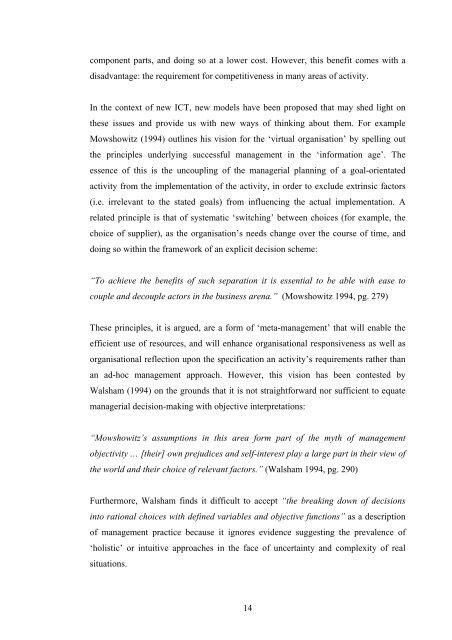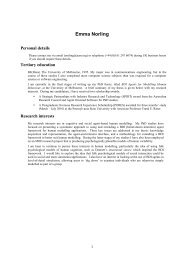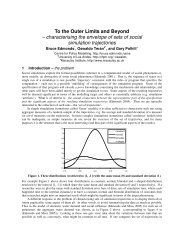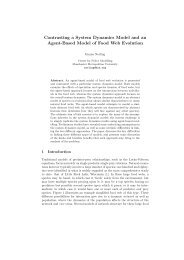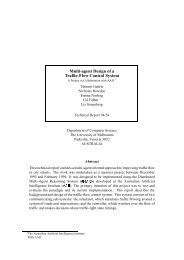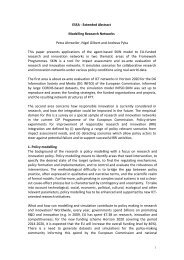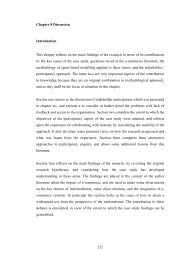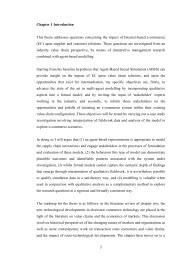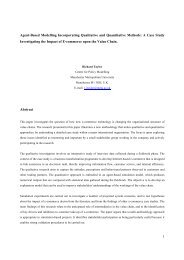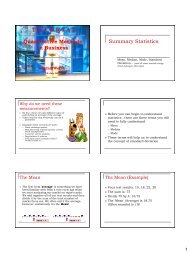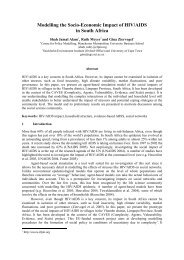7 Chapter 2 Literature Review: Markets, Intermediation and E ...
7 Chapter 2 Literature Review: Markets, Intermediation and E ...
7 Chapter 2 Literature Review: Markets, Intermediation and E ...
You also want an ePaper? Increase the reach of your titles
YUMPU automatically turns print PDFs into web optimized ePapers that Google loves.
component parts, <strong>and</strong> doing so at a lower cost. However, this benefit comes with a<br />
disadvantage: the requirement for competitiveness in many areas of activity.<br />
In the context of new ICT, new models have been proposed that may shed light on<br />
these issues <strong>and</strong> provide us with new ways of thinking about them. For example<br />
Mowshowitz (1994) outlines his vision for the ‘virtual organisation’ by spelling out<br />
the principles underlying successful management in the ‘information age’. The<br />
essence of this is the uncoupling of the managerial planning of a goal-orientated<br />
activity from the implementation of the activity, in order to exclude extrinsic factors<br />
(i.e. irrelevant to the stated goals) from influencing the actual implementation. A<br />
related principle is that of systematic ‘switching’ between choices (for example, the<br />
choice of supplier), as the organisation’s needs change over the course of time, <strong>and</strong><br />
doing so within the framework of an explicit decision scheme:<br />
“To achieve the benefits of such separation it is essential to be able with ease to<br />
couple <strong>and</strong> decouple actors in the business arena.” (Mowshowitz 1994, pg. 279)<br />
These principles, it is argued, are a form of ‘meta-management’ that will enable the<br />
efficient use of resources, <strong>and</strong> will enhance organisational responsiveness as well as<br />
organisational reflection upon the specification an activity’s requirements rather than<br />
an ad-hoc management approach. However, this vision has been contested by<br />
Walsham (1994) on the grounds that it is not straightforward nor sufficient to equate<br />
managerial decision-making with objective interpretations:<br />
“Mowshowitz’s assumptions in this area form part of the myth of management<br />
objectivity … [their] own prejudices <strong>and</strong> self-interest play a large part in their view of<br />
the world <strong>and</strong> their choice of relevant factors.” (Walsham 1994, pg. 290)<br />
Furthermore, Walsham finds it difficult to accept “the breaking down of decisions<br />
into rational choices with defined variables <strong>and</strong> objective functions” as a description<br />
of management practice because it ignores evidence suggesting the prevalence of<br />
‘holistic’ or intuitive approaches in the face of uncertainty <strong>and</strong> complexity of real<br />
situations.<br />
14


